From Eco- to sustainable design
Researchers: Bernhard Dusch, James Moultrie
As one of the key aspects of new product development, design plays a central role in the development of more sustainable products. Throughout the 1990s the notion of ecodesign has been developed in the design community. Ecodesign aims to optimise the environmental performance of a particular product, mostly on the basis of technical methods such as life cycle assessment. To date, ecodesign is widely discussed in design research and fairly well consolidated in design practice.
As during the last decade the limitations of ecodesign become more obvious, design research started to move towards the idea of sustainable design. This way of thinking is strongly influenced by the notion of system theory and follows a more versatile approach. Accordingly, not only technical aspects of a particular product are primarily of interest, but also organisational, behavioural and managerial factors which set the product in the context of a wider picture of production and consumption.
Although the idea of sustainability seems to be widely discussed in design research, there are signs that the true meaning of this notion has not been fully assimilated in new product development to date. This raises the question of how design research can better support the integration of sustainable design thinking in design practice.
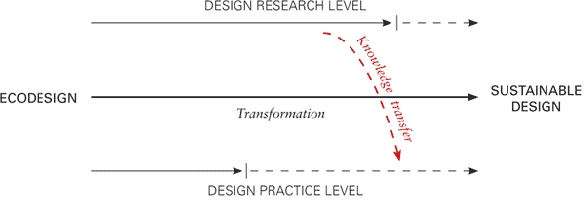
One of the key aspects of this project is the development of sustainable design reference and brainstorm tools. Despite their different areas of application, all tools draw on the same body of knowledge which is represented case specific. Thereby the tools not only translate theoretical sustainable design knowledge into practical design strategies, but also communicate the fundamental concept of sustainable design in an accessible way.
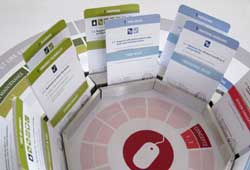 |
 |
 |
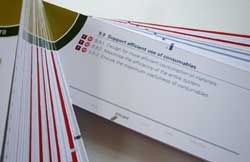 |
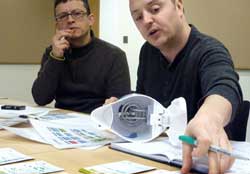 |
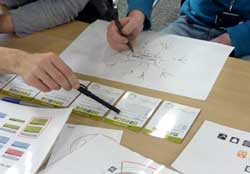 |
Although primarily designed as part of the research methods of this study, the tools have increasingly generated interest among design practitioners for use in their own creative process. In response to these enquiries we are currently working on an official version of our tool kit which will be available later on this year.
Please contact us if you are a design researcher or practitioner interested in our tools or in participating in our study. For more information, please visit here.
Contact: Bernhard Dusch.









